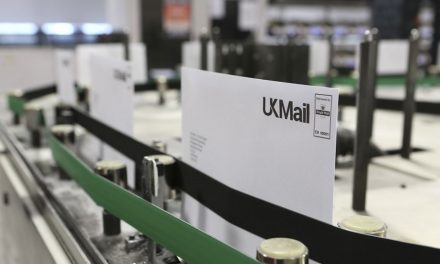
e-Bills Will Surpass Paper Bills By 2016
NACHA, the Electronic Payments Association, has released an eBilling Benchmarking
Study examining potential growth of electronic payment systems. Their study showed
that 26.6% of all bills are now sent electronically with the largest percentage among
customers of educational institutions and wireless telecommunications companies.
The study also showed that on average firms surveyed had e-bill volumes grow by 32.3%
on average over the past two years.
In describing the results of the study, Ed Bachelder, director of research for Blueflame
Consulting stated “After easily converting the ‘early adopters’ to eBills, billers are
realizing that the second and third tiers of consumers will take more time to convince.
However, billers across a broadening range of markets and sizes see eBill adoption as
an important program for their companies, and have shown commitment to continuing to
try to convert their customers.”
Nine of ten of the companies surveyed rate eBill adoption to be a significant opportunity
for their organizations. Cost-savings serves as a major driver for companies, with
projected savings falling between 40 and 50 cents per bill. Another motivating factor,
billers also said eBill customers are more satisfied customers and are easier to retain.
Collectively, participants in the study distribute 735 million bills in a typical month, which
is approximately 25 percent of all bills nationwide.
“eBills have not reached their full potential, but they’re gaining momentum,” said Janet O.
Estep, president and CEO of NACHA – The Electronic Payments Association. “With
companies’ long-term commitment to converting their customers to electronic bill
presentment, we see adoption gaining momentum.”
Of those surveyed, universities had the most successful eBilling programs by far. Most
universities can mandate eBilling for their students or use a customer opt-out approach
rather than an opt-in approach. “Most billers ask their customers to opt-in to the eBilling program,” said Bachelder.
“Companies could increase their eBill participation dramatically by changing their new
customer enrollment to an opt-out approach. Our study suggests that only 10 percent of
customers who have Internet access would choose to opt-out once they experienced
eBilling. Study participants identified one obstacle to eBilling is that the sign-up process is
often too time-consuming for customers. An opt-out program would simplify that step.”
Participants in the study agree that more customer education is needed about how
eBilling works, the security involved, and how significant paper reduction is to improving
the environment.
“Once customers truly understand eBilling, they respond positively for a number of
reasons,” said Estep. “Convenience is key, and environmental messaging continues to
be a supporting motivator for eBill adoption.”
The eBilling Benchmarking Study presentation here: PDF file
The firm that conducted the study as well as the sponsors are as follows:
Blueflame Consulting
Blueflame Consulting is a Boston-area consulting practice specializing in strategic
research for financial services organizations, utilities, large billers and payment
processors. www.bflame.com
CEBP
The Council for Electronic Billing and Payment (CEBP) promotes the adoption and usage
of electronic consumer, business and government billing and payment programs and
services across any delivery channel. The CEBP provides an open forum for education,
resource development, solution innovation, research and the exchange of information
about the electronic billing and the electronic payment industries. www.cebp.nacha.org
PayItGreen
PayItGreen is a partnership between financial institutions, related financial industry
service providers, and businesses of all sizes. The mission of PayItGreen is to combine
the sustainability efforts of these stakeholders to educate the country about the positive
environmental impact of getting paid and paying bills electronically, and opting for
electronic statements and eBills. www.payitgreen.org
NACHA – The Electronic Payments Association
NACHA supports the growth of the ACH Network by managing its development,
administration, and governance. The ACH Network facilitates global commerce by
serving as a safe, efficient, ubiquitous, and high-quality electronic payment system.
NACHA represents nearly 11,000 financial institutions through 17 regional payments
associations and direct membership. Through its industry councils and forums, NACHA
brings together payments system stakeholder organizations to encourage the efficient
utilization of the ACH Network and develop new ways to use the Network to benefit its
diverse set of participants. To learn more, visit www.nacha.org,
www.electronicpayments.org, and www.payitgreen.org.











